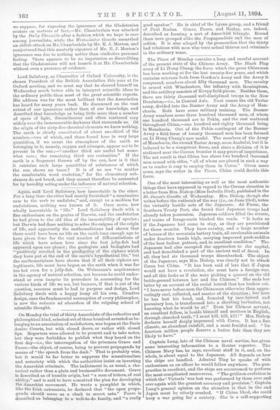On Monday the trial of thirty Anarchists of the reflective
and philosophical kind, selected out of three hundred arrested as be- longing to an association of malefactors, was begun at the Paris Assize Courts, but with closed doors, or rather with closed lips. Reporters were allowed to be present and to take notes, but they were forbidden to publish what they heard on the first day—i.e., the interrogation of the prisoners Grave and Faure—the object, of course, being to prevent propaganda by means of "the speech from the dock." That is probably wise, but it would be far better to suppress the sensationalism and notoriety with which the authorities insist on investing the Anarchist criminals. The indictment is, as usual, a rhe- torical rather than a plain and businesslike document. Grave is described as of humble origin, but "a man of letters, of real ability," and is said to have conceived the plan for developing the Anarchist movement. He wrote a pamphlet in which, like the Irish extremists, he declared that "the open propa- ganda should serve as a cloak to secret acts." Faure is described as belonging to a well-to-do family, and "a really good speaker." He is chief of the Lyons group, and a friend/ of Paul Reolus. Grave, Faure, and Reclus, are, indeed,. described as forming a sort of Anarchist triangle. Round them were grouped alike the Propagandists and the men of action. It is also alleged by the prosecution that the thirty had relations with men who were actual thieves and criminals in the ordinary sense.


































 Previous page
Previous page